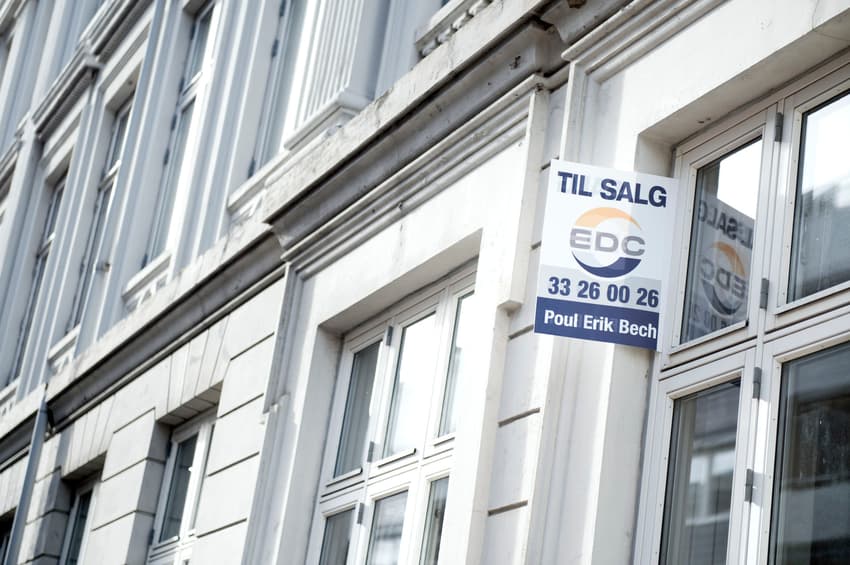Danish house prices could fall by nearly 10 percent in 2023

A new forecast by Denmark’s central bank Nationalbanken predicts that house prices could fall by 9.4 percent this year.
The new forecast shows increased pessimism from the central bank over house price trends in 2023, given the previous forecast from September 2022 predicted a drop of 5.6 percent for the current year.
In the forecast, published on Wednesday, the National Bank writes that the predicted trend “reflects a market where sellers have not sufficiently reduced asking prices in relation to what buyers are willing to and can afford to pay in relation to the steep interest rate increases”.
“There have been large knockdowns [due to interest, ed.] which have increased further in recent months. That indicates that further falls in price await,” it said.
Nationalbanken raised its lead interest rate in December by 0.5 percent to 1.75 percent.
READ ALSO:
- IN CHARTS: How bad is the situation in Scandinavian housing markets?
- Number of homes for sale in Denmark up 30 percent in 2022
- EXPLAINED: How to restructure and reduce your mortgage in Denmark
Next year could also see a “technical decrease” in property prices according to the central bank. This will be at a far more modest level of 0.3 percent and is primarily a result of the calculation technique by which 2023 and 2024 prices are compared, according to news wire Ritzau.
An actual bottoming-out of house prices is expected in December this year, Nationalbanken forecasts. At this point, prices will be back at 2020 levels should the latest prognosis bear out.
Property prices will subsequently begin to increase again but at a lower rate than their decrease during 2023. As such, the average house price in 2024 will be less than the average for 2023.
2025 will see a return to house prices at a higher average level than the prior year, Nationalbanken predicts.
Comments
See Also
The new forecast shows increased pessimism from the central bank over house price trends in 2023, given the previous forecast from September 2022 predicted a drop of 5.6 percent for the current year.
In the forecast, published on Wednesday, the National Bank writes that the predicted trend “reflects a market where sellers have not sufficiently reduced asking prices in relation to what buyers are willing to and can afford to pay in relation to the steep interest rate increases”.
“There have been large knockdowns [due to interest, ed.] which have increased further in recent months. That indicates that further falls in price await,” it said.
Nationalbanken raised its lead interest rate in December by 0.5 percent to 1.75 percent.
READ ALSO:
- IN CHARTS: How bad is the situation in Scandinavian housing markets?
- Number of homes for sale in Denmark up 30 percent in 2022
- EXPLAINED: How to restructure and reduce your mortgage in Denmark
Next year could also see a “technical decrease” in property prices according to the central bank. This will be at a far more modest level of 0.3 percent and is primarily a result of the calculation technique by which 2023 and 2024 prices are compared, according to news wire Ritzau.
An actual bottoming-out of house prices is expected in December this year, Nationalbanken forecasts. At this point, prices will be back at 2020 levels should the latest prognosis bear out.
Property prices will subsequently begin to increase again but at a lower rate than their decrease during 2023. As such, the average house price in 2024 will be less than the average for 2023.
2025 will see a return to house prices at a higher average level than the prior year, Nationalbanken predicts.
Join the conversation in our comments section below. Share your own views and experience and if you have a question or suggestion for our journalists then email us at [email protected].
Please keep comments civil, constructive and on topic – and make sure to read our terms of use before getting involved.
Please log in here to leave a comment.